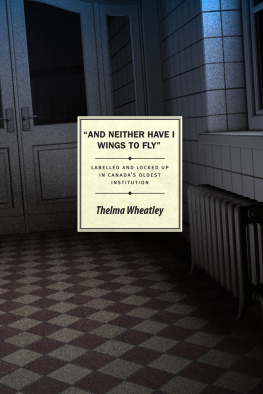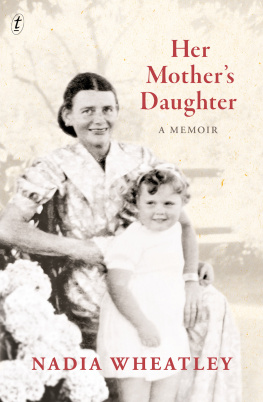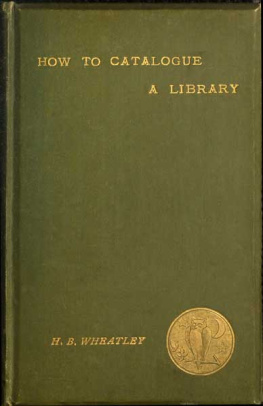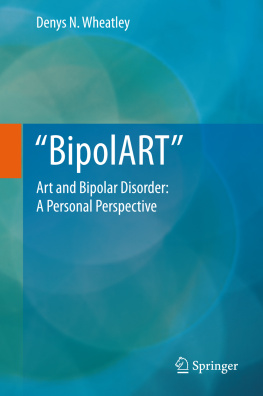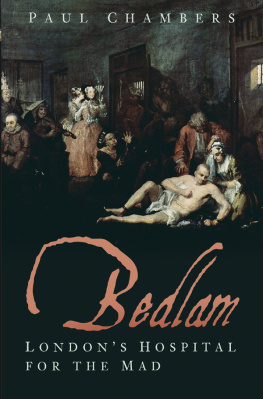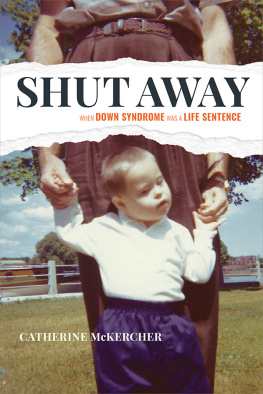And Neither Have I Wings to Fly
And Neither Have I Wings to Fly
Labelled and Locked Up in Canadas Oldest Institution
Thelma Wheatley

INANNA PUBLICATIONS AND EDUCATION INC.
TORONTO, CANADA
Copyright 2013 Thelma Wheatley
Except for the use of short passages for review purposes, no part of this book may be reproduced, in part or in whole, or transmitted in any form or by any means, electronically or mechanically, including photocopying, recording, or any information or storage retrieval system, without prior permission in writing from the publisher.


We gratefully acknowledge the support of the Canada Council
for the Arts and the Ontario Arts Council for our publishing program.
We are also grateful for the support received from an Anonymous Fund at The Calgary Foundation.

Cover design: Val Fullard
Interior design: Luciana Ricciutelli
eBook development: WildElement.ca
Library and Archives Canada Cataloguing in Publication
Wheatley, Thelma, 1941-
And neither have I wings to fly : labelled and locked up in
Canadas oldest institution / Thelma Wheatley.
Includes bibliographical references.
Issued also in electronic format.
ISBN 978-1-926708-58-4
1. People with mental disabilitiesOntarioOrilliaBiography.
2. People with mental disabilitiesAbuse ofOntarioOrilliaHistory.
3. People with mental disabilitiesInstitutional careOntarioOrillia
History. 4. Huronia Regional CentreHistory. 5. EugenicsCanada
History20th century. 6. Involuntary sterilizationOntario
OrilliaHistory. I. Title.
HV3008.C32O75 2013 362.380971317 C2012-904532-4
Printed and bound in Canada
Inanna Publications and Education Inc.
210 Founders College, York University
4700 Keele Street
Toronto, Ontario, Canada M3J 1P3
Telephone: (416) 736-5356 Fax (416) 736-5765
Email: inanna.publications@inanna.ca
Website: www.inanna.ca
For Daisy,
and all who have passed this way.
TABLE OF CONTENTS
AUTHORS NOTE
The terms used throughout this book that refer to developmentally and intellectually challenged persons are those that were used from the early 1900s up to the 1970s, and do not reflect the authors own usage or attitude.
Classification Terms, 1900s:
Term I.Q.
Idiot below 20 or 25
Imbecile 20-25
Moron/ Half-Moron 50-70 or 75
Dull Normal 80-90
(Average I.Q. on Stanford-Binet Scale: 100)
The labels feeble-minded and mentally defective were general terms that had different meanings in various countries in the early twentieth century. Canadians and British tended to use these words to denote those with a higher level of intelligence, I.Q. in the 70 range on the Binet Scales of Intelligence, or a mental age of twelve years. Americans used these words to denote all mental defectives generally. Retarded was another general term in use. People in the institution were invariably referred to as inmates, patients, and residents.
Pseudonyms have been used for Daisy and members of her family, nursing staff and attendants at Orillia, Salvation Army workers at The Nest, and social workers, excepting Vera Moberley of the Childrens Aid Society, to protect their identity. Patient file numbers for this book have been recoded in accordance with the Freedom of Information and Protection of Privacy Act of theprovince of Ontario.
Mentally defective children should be separated from the normal at an early age and what better place to send them than the asylum in Orillia?
Dr. Helen MacMurchy, Inspector of the Feeble-Minded in Ontario, 1906-1919.
PROLOGUE
Y OU KNOWS WHAT TO WRITE, Thelma, you knows legal. That is what Daisy Potts said to me in 2006, the day she sought me out. She was in her early sixties at the time. Daisy gripped my arm. You cn get my file from Orillia, please and thank you and kindly. She said she had been in Cottage O .
At once Cottage O came to mind from my research: a dull, red brick, three-storey building with rows of windows, next to Entrance B . In its time, it had held thousands of girls, the long wards locked at night. Daisy Potts had been institutionalized in Orillia as a child, and now that institution was slated to be permanently closed by the government of Ontario in 2009. Daisy wanted my help to get her records, before it was too late. She had never been allowed to see them and she wanted finally to know what was in them.
The institution which most people simply called Orillia had originally been called the Asylum for Idiots and Feebleminded (a former branch of the Provincial Lunatic Asylum in Toronto), the oldest in Canada for mentally retarded people, dating back to 1876. Heralded as innovative and humane, a fine place for idiots and epileptics, the asylum had provided custodial care and protection for the thirty or so inmates at its opening. Before that time, mental defectives, as they were often called, whose families could no longer care for them, often ended up in the county lunatic asylum, or worse, the work house or local gaol, or were left roaming the countryside at will. The new asylum was meant to mitigate such horrors, and provide not just custodial care but vocational training for the more educable ones, with the intent of eventually returning them to their families.
By the early 1900s, however, attitudes toward mental defectives had begun to change as the effects of the Industrial Revolution took its toll on the cities: slums, unemployment, crime, and disease gave rise to fears of a new underclass. Orillia became a big custodial institution, a useful place to put the unwanted in society, the so-called feeble-minded, that included a mix of indigents invariably found on its wards: paupers, incurables, alcoholics, syphilitics, the old and infirm , and unmarried girls and their babies who had nowhere else to go.
Renamed Ontario Hospital School ( OHS ) in 1936, it had a population of nearly 3,000 when Daisy was housed there in the 1950s. A grim sort of place for a child, I always thought on my visits, with its vast grounds, over two hundred acres, and towering Administration Building much praised for its fine front. There were double-glassed doors at the top of a flight of steps through which all the new admissions passed.
It was hard to imagine Daisy in such a place.
But Daisy, youre not retarded! At once I regretted the word, so outmoded, anachronistic in definition. A look of bewilderment crossed her face.
Yeah, well, thats what Childrens Aid in Tronto said too, Thelma. They promised I wouldnt be with the retarded ones; Id be kept seprate on the ward.
I was silent. This sounded much like the placating of parents so familiar to me as a former teacher. There was obviously much here left unsaid, perhaps lost to the understanding of a small child, even duplicitous.
First I was taken away, cause I was the oldest. Then Lizzie and my baby brother, Pips. But Childrens Aid kept them together in a foster home in Richmond Hill an I never really saw much of them again.

